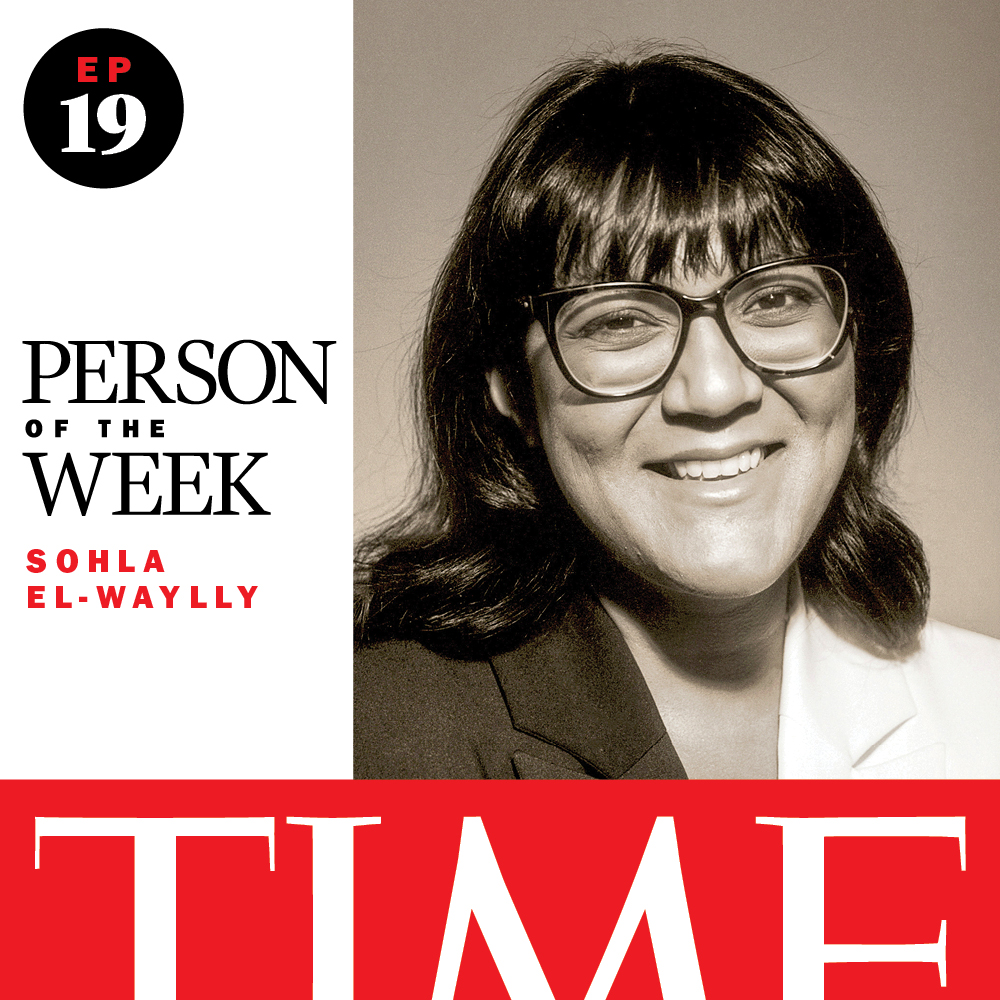We all know we need to eat food in order to survive. But Sohla El-Waylly thinks about food in a much deeper way. She sees food not just as a method by which a person can fill their body with nutrients—but as a way to be creative; to engage with culture; and to bring people together.
She’s written recipes for Bon Appétit and the New York Times Cooking section, been honored as one of the TIME100 Next in 2021, served as a guest editor of the 2022 edition of the Best American Food Writing anthology, and hosts her own cooking show on the History Channel.
And her new cookbook, Start Here, aims to help new cooks find their way around the kitchen, as a way of helping food become more than just something to eat.
El-Waylly joined us just a few weeks after giving birth to her first child, and frankly, I was shocked—and thrilled—that she was able to make it in to our studio!
Tune in every Thursday, and join us as we continue to explore the minds that shape our world. You can listen to the full episode in the player above, but here are a handful of excerpts from our conversation, which have been condensed and edited for clarity.
On how food content can lead to a paralyzing perfectionism:
I think that cooking feels really scary, especially now, because there’s so much food content that looks so glamorized. And so pretty and so perfect and the fact is, what you as a viewer don’t know is: how, many hours did it take for someone to make that? How many takes? How many tries? So when you make an egg at home and it’s not perfect, it’s easy to be discouraged. Or, you bake a cake and it’s lopsided. I think that we’re forgetting that food’s not supposed to be beautiful all the time. It’s supposed to be nourishing.
On why she doesn’t like the word “authentic” when it comes to food:
Well, what does that even mean? Food is always changing. Even if you’re staying in one place. Even the food in Bangladesh. I go so infrequently, like 10 years will pass, and it’s completely different. The food scene there is constantly evolving because people are always moving through places, so calling something “authentic,” it’s just not true. I was recently working on a project where we were studying tteokbokki, the Korean chewy rice cakes. Nowadays you often find it in this spicy gochujang sauce, but traditionally it was not in a spicy sauce at all. Traditionally, chilies weren’t even a part of Korean cuisine until pretty recently, in terms of history, maybe 400 years ago. So it’s interesting now how people have this idea that, ‘Oh, tteokbokki has to be in this spicy gochujang sauce.’ Even though chilis and gochujang are relatively new to that cuisine. So there’s no such thing as authentic.
On what is cultural appropriation in food, and what isn’t:
I think everyone should make everything. That’s something that’s really frustrated me in my career. When I first started, people would look at me and just want me to make Bengali food. No, I want to make everything, And a lot of chefs have been historically allowed to make whatever they want while other chefs haven’t. But this conversation, I think it’s missing the point. It’s about how you present something. Are you going to make something and pretend like you invented it when it’s belonged to a culture for hundreds of years?
You as a home cook? Make whatever the hell you want. That’s not cultural appropriation. But if you’re a prolific recipe developer working for a big platform and you’re making mole negro and acting like you invented it and you’re calling it “chili sauce,” that’s a problem.
- What Student Photojournalists Saw at the Campus Protests
- How Far Trump Would Go
- Why Maternity Care Is Underpaid
- Saving Seconds Is Better Than Hours
- Welcome to the Golden Age of Ryan Gosling
- Scientists Are Finding Out Just How Toxic Your Stuff Is
- The 100 Most Influential People of 2024
- Want Weekly Recs on What to Watch, Read, and More? Sign Up for Worth Your Time
